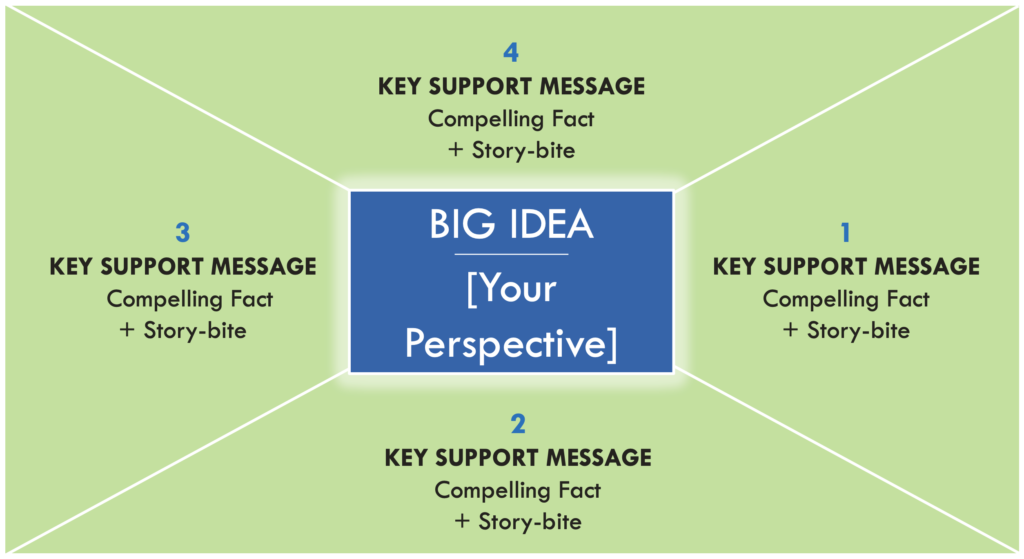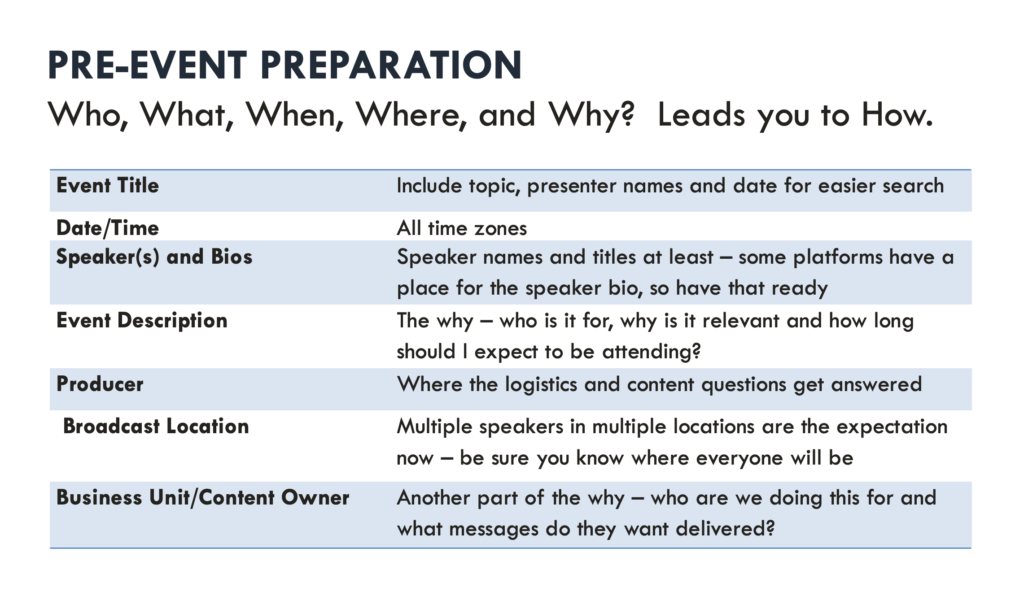Public speaking is old hat to many corporate executives, but what happens when you remove the in-person audience and transition to Live Video broadcasting instead? Although most principles for a successful presentation translate well between the two mediums, Live Video requires a slightly more nuanced approach to captivate your audience.
One of the biggest challenges when switching to Live Video, is learning how to become an authentic presenter. Yes, body language and vocal intonations play a big role in how your message is received, but true authenticity comes from preparation. Here’s what you need to know.
Be Intentional
From the moment you first appear on screen, you need to be immediately interesting to your audience. Little things like what you’re wearing, where you sit, and how you sound are all important elements that need to be considered before go-live, as they set the stage for what your audience can expect during the presentation. If you plan to present a slide deck, remember to speak purposefully, using the cadence of your speech to draw attention to the most important content.
Build Trust & Influence
Although looking and sounding the part is essential to authenticity, it’s the ability to build trust that is cornerstone to all successful Live Video presentations. One of the easiest ways to do so is by using story-bites. Lou Solomon, TEDx speaker and owner of Interact, describe story-bites as a morsel of information that adds imagery and understanding to an idea – like a metaphor or an analogy. Her favorite example of a story-bite in action is when Steve Jobs announced that Apple would transition to using Intel processors in all Macs. Instead of speaking solely in technical terms though, he likened it to a heart transplant. This made it much more relatable to everyday consumers and in turn, built trust.

One way to extend that trust and exert influence is by organizing your key points in a message map. A message map is a simple framework that can be used for any type of presentation or important conversation. You start by identifying the key point you would like to make. If, for example, you've developed an Enterprise Content Delivery Network like Kollective has, your primary message is that ECDNs scale Live Video content to the edge of your network by eliminating bandwidth constraints. To reinforce that message, you would combine a fact with a story-bite to create a compelling argument for why that is true.
Example: Kollective ECDN delivers 100% of video content at 1% of bandwidth. You can think of our platform like the ball bearings in a car. We remove friction so you can accelerate your network.
The process is then repeated until your point has been made.
Make a Plan
Every video production – big and small – needs a plan. We recommend creating a playbook or checklist to guide your Live Event planning and preparation. Outlining the who, what, where, when and why leads you to the how, which is fundamental to an authentic presentation.

At this time, it is also essential to establish roles and responsibilities, so everyone is aligned on expectations. The event owner for example, is responsible for managing deadlines and assigning tasks. The producer, on the other hand, owns content and run of show. Other team members, like an executive sponsor, network administrator or help desk support, can be added as needed.
Practice Makes Confidence
The final step to becoming a more authentic present is to practice, practice, practice. If you show up on the day of and haven’t rehearsed your presentation, the audience will take note. While most of us don’t like to watch ourselves on video, doing so can mean the difference between a mediocre presentation and a strong one.
Learn to become a more authentic presenter
With COVID-19 forcing more businesses to go virtual, Live Video is now a necessary component of every corporate communications strategy. To learn more tips on becoming a better virtual presenter, watch our webinar on demand, Learn to Present Authentically with Live Video.
 Cliente
Cliente